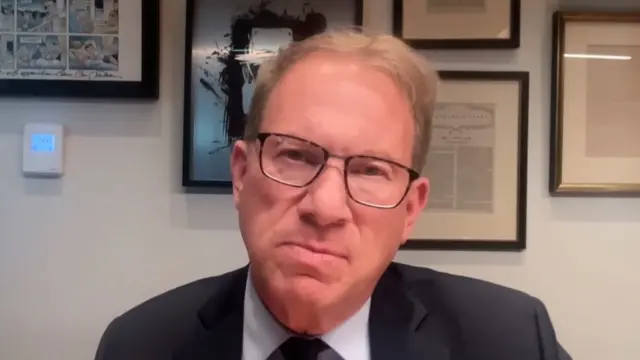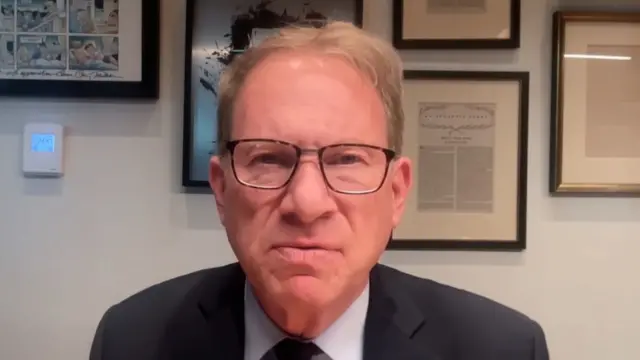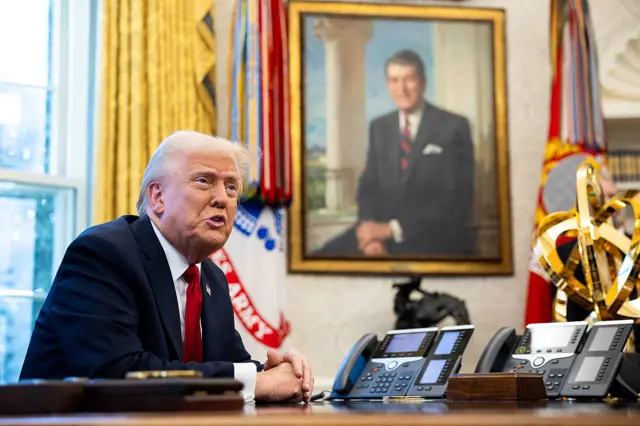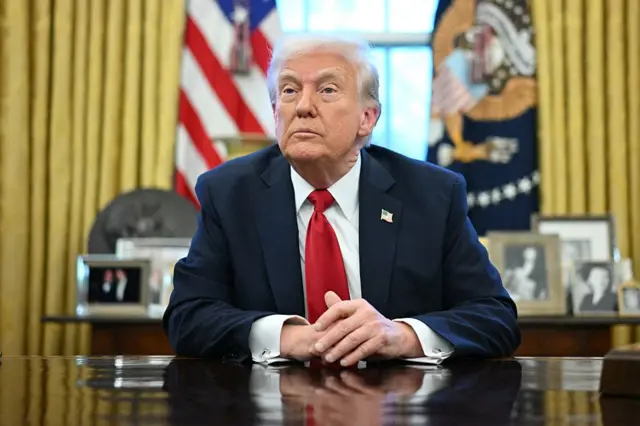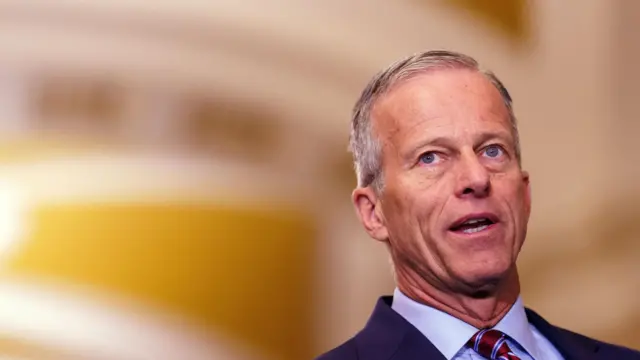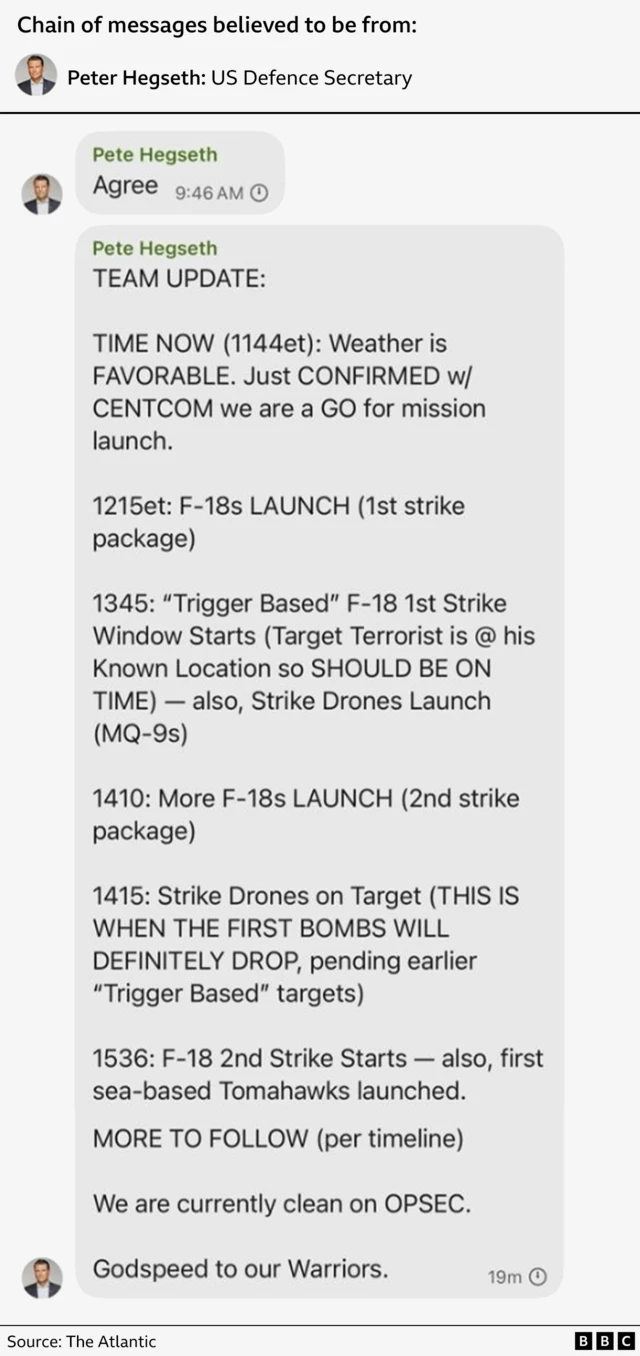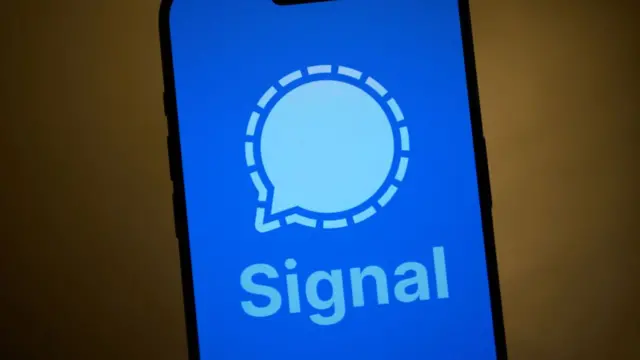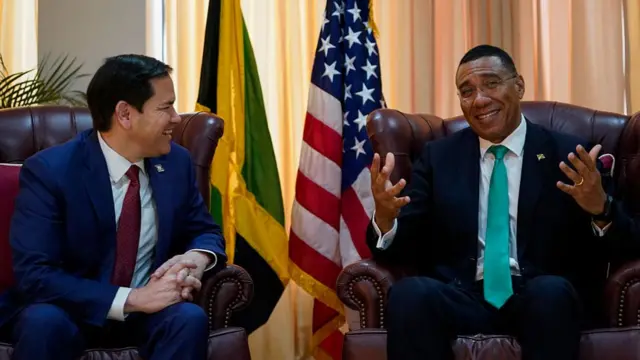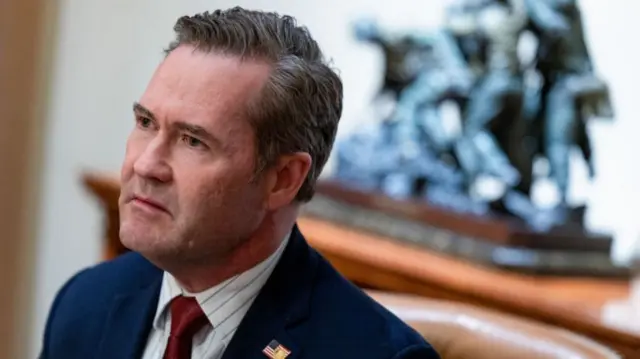Trump downplays Signalgate but scandal shows no sign of slowingpublished at 00:09 GMT 27 March
 Brandon Livesay
Brandon Livesay
Reporting from New York
Is the Signal chat leak involving Trump officials a big deal?
News comes out of Trump’s White House at such a relentless pace that stories can seemingly vanish into the background, steamrolled by the president’s latest Truth post or executive order.
But Signalgate, as this scandal has been dubbed, is the rare story with staying power.
When Trump announced a new tariff in the Oval Office this afternoon, he told a reporter who asked about Signal to “hold on one second” so he could find someone else who would ask him about tariffs.
Trump did end up taking questions on the Signal group chat, and the president distanced himself from the scandal. Asked if he was sure no classified material was shared, he said “that’s what I’ve heard. I don’t know”.
It's a scaled back take, compared to what many in his administration said today - they've been adamant that no classified materials were shared.
That downplaying of the details in the group chat are what spurred The Atlantic to publish more messages from defence secretary Pete Hegseth today, Goldberg told the BBC.
We’re pausing our live coverage for the day, but there’s a whole lot of further reading you can get stuck into here:
